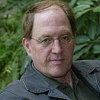Where Is the Inequality Problem?
CAMBRIDGE – Reading Thomas Piketty’s influential new book Capital in the Twenty-First Century, one might conclude that the world has not been this unequal since the days of robber barons and kings. That is odd, because one might conclude from reading another excellent new book, Angus Deaton’s The Great Escape (which I recently reviewed), that the world is more equal than ever.
Which view is right? The answer depends on whether one looks only at countries individually or at the world as a whole.
The overarching fact in Deaton’s book is that over the last few decades, several billion people in the developing world, particularly in Asia, have escaped truly desperate levels of poverty. The same machine that has increased inequality in rich countries has leveled the playing field globally for billions. Looking from afar, and giving, say, an Indian the same weight as an American or a Frenchman, the last 30 years have been among the greatest in human history for improving the lot of the poor.
Piketty’s brilliant book documents within-country inequality, with the main focus being on the rich world. Much of the cultural groundswell surrounding his book has come from people who view themselves as middle class within their own countries, but who are upper middle class or even rich by global standards.
There are various arcane technical debates surrounding the facts that Piketty has established over the past 15 years with his co-author Emmanuel Saez. But I find their results persuasive, especially given that other authors, using completely different methods, have reached similar conclusions. Brent Neiman and Loukas Karabarbounis of the University of Chicago, for example, argue that labor’s share of GDP has been declining globally since the 1970’s.
However, Piketty and Saez do not really offer a model; nor does this new book. And the lack of a model, combined with a focus on the world’s upper-middle-class countries, matters a lot when it comes to policy prescriptions. Would Piketty’s followers be nearly as enthusiastic about his proposed progressive global wealth tax if it were aimed at correcting the huge disparities between the richest countries and the poorest, instead of between those who are well off by global standards and the ultra-wealthy?
Piketty argues that capitalism is unfair. Wasn’t colonialism unfair, too? In any event, the idea of a global wealth tax is replete with credibility and enforcement problems, aside from being politically implausible.
Though Piketty is right that returns to capital have increased in the last few decades, he is too dismissive of the wide-ranging debate among economists concerning the causes. For example, if the main driver is the massive influx of Asian labor into globalized trade markets, the growth model put forth by the Nobel laureate economist Robert Solow suggests that eventually capital stocks will adjust and the wage rate will rise. Retirements from an aging labor force will eventually drive up wages as well. If, on the other hand, labor’s share of income is falling because of the inexorable rise of automation, downward pressures on that share will continue, as I discussed in the context of artificial intelligence a few years ago.
Fortunately, there are much better ways to address rich-country inequality while still fostering long-term growth in demand for products from developing countries. For example, a shift to a relatively flat consumption tax (with a large deductible for progressivity) would be a far simpler and more effective way to tax past wealth accumulation, especially if citizens’ tax home can be linked to the locale where their income was earned.
A progressive consumption tax is relatively efficient and does not distort savings decisions as much as today’s income taxes do. Why try to move to an improbable global wealth tax when alternatives are available that are growth friendly, raise significant revenue, and can be made progressive through a very high exemption.
In addition to a global wealth tax, Piketty recommends an 80% marginal tax rate on income for the United States. Though I strongly believe that the US needs more progressive taxation, particularly of the top 0.1%, I don’t understand why he assumes that an 80% rate would not cause significant distortions, especially as this assumption contradicts a large body of work by the Nobel laureates Thomas Sargent and Edward Prescott.
There are many practical policies that can be adopted to reduce inequality, in addition to a progressive consumption tax. Focusing on the US, Jeffery Frankel of Harvard University has suggested the elimination of payroll taxes for low-income workers, a cut in deductions for high-income workers, and higher inheritance taxes. Universal pre-school education would enhance long-term growth, as would a much greater emphasis on lifetime adult education (my addition), possibly via online courses. Carbon taxes would help mitigate global warming while raising considerable revenues.
In accepting Piketty’s premise that inequality matters more than growth, one needs to remember that many developing-country citizens rely on rich-country growth to help them escape poverty. The first problem of the twenty-first century remains to help the dire poor in Africa and elsewhere. By all means, the elite 0.1% should pay much more in taxes, but let us not forget that when it comes to reducing global inequality, the capitalist system has had an impressive three decades.
Copyright: Project Syndicate, 2014.
www.project-syndicate.org
This article is brought to you by Project Syndicate that is a not for profit organization.
Project Syndicate brings original, engaging, and thought-provoking commentaries by esteemed leaders and thinkers from around the world to readers everywhere. By offering incisive perspectives on our changing world from those who are shaping its economics, politics, science, and culture, Project Syndicate has created an unrivalled venue for informed public debate. Please see: www.project-syndicate.org.
Should you want to support Project Syndicate you can do it by using the PayPal icon below. Your donation is paid to Project Syndicate in full after PayPal has deducted its transaction fee. Facts & Arts neither receives information about your donation nor a commission.




















